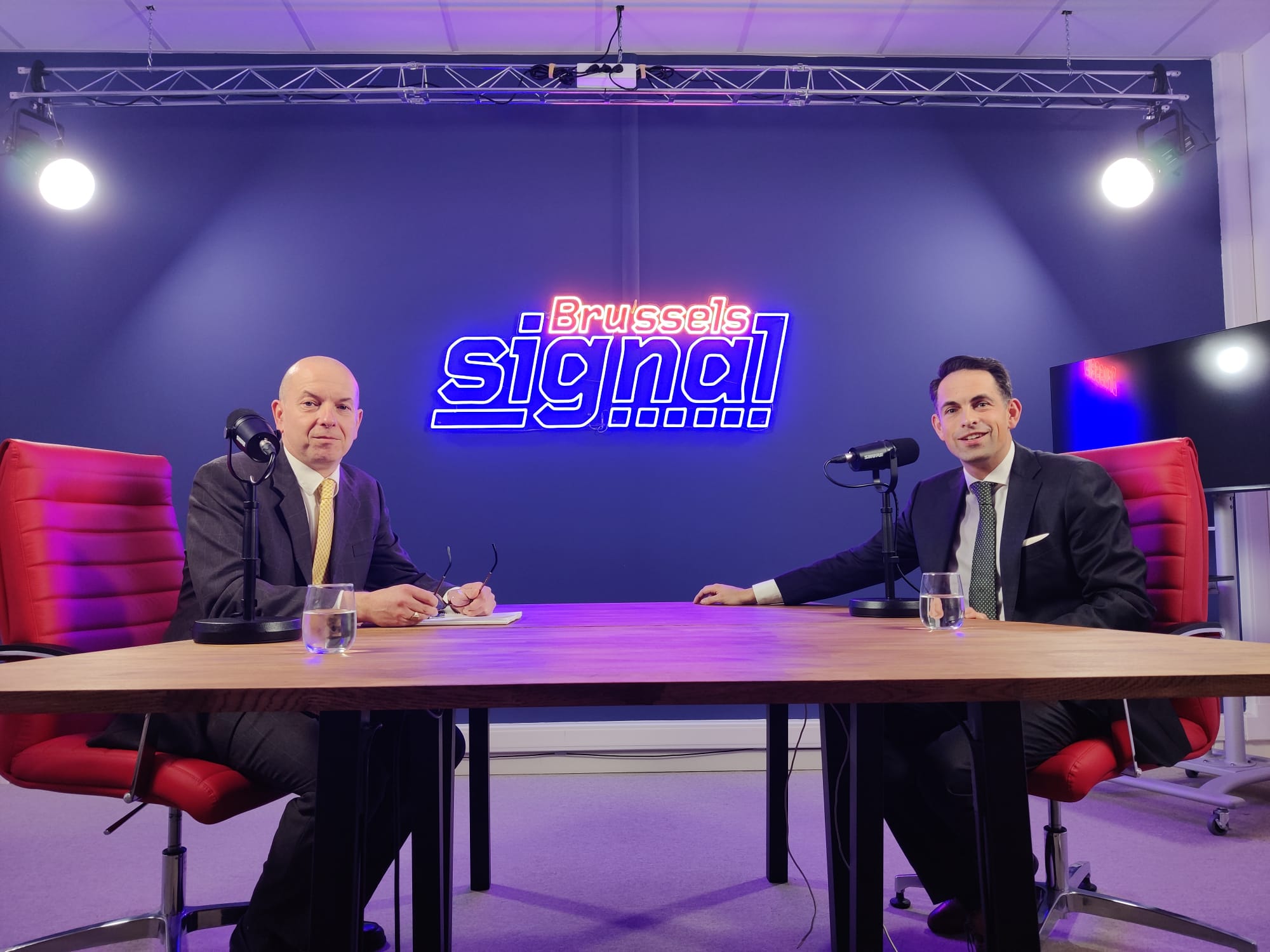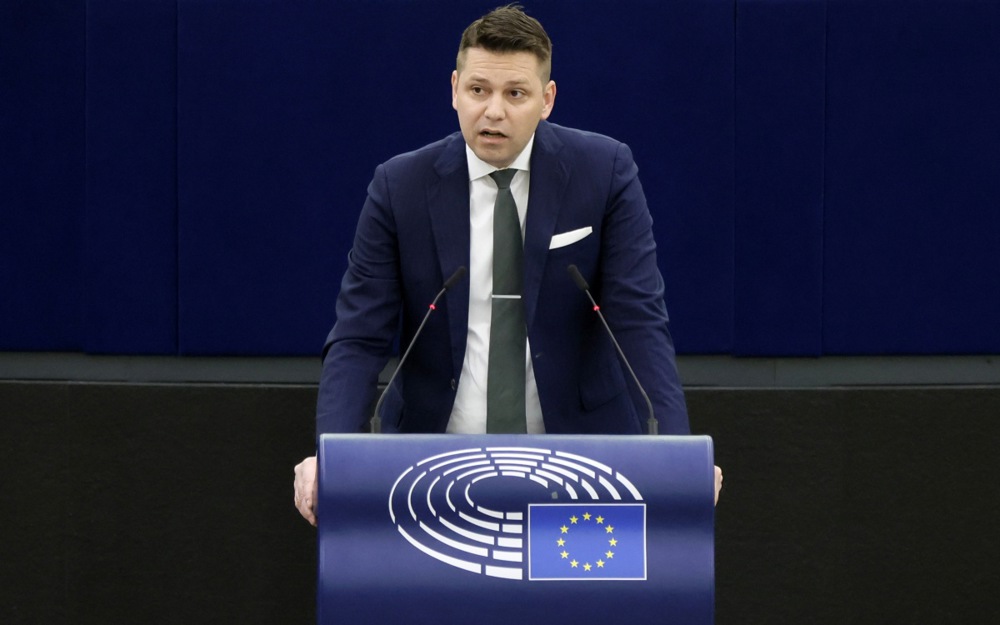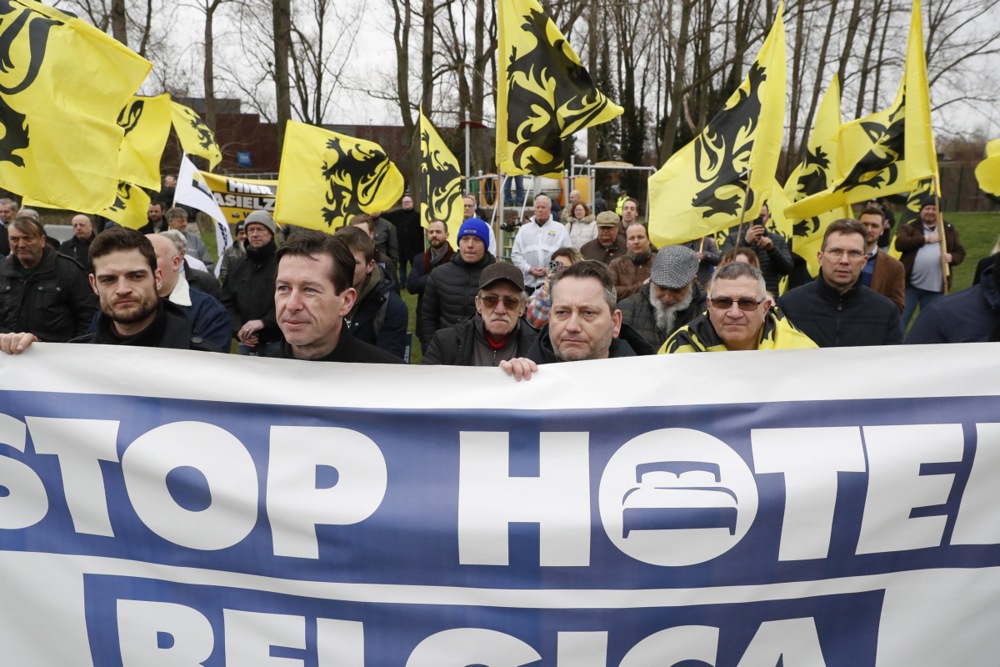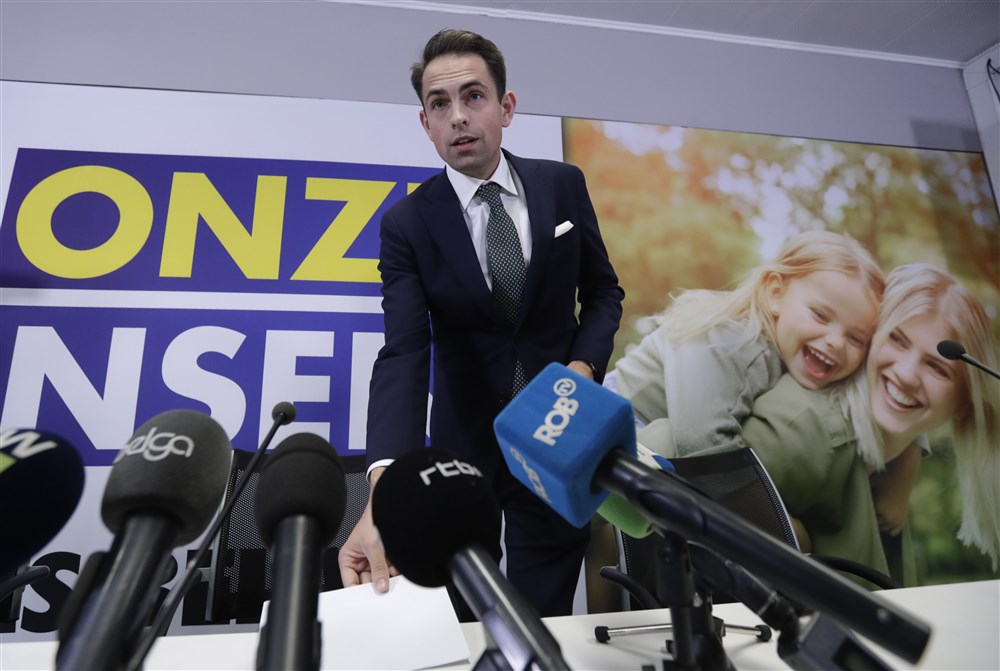Parties on the hard-right are often accused of being “anti-European”. Belgium’s Flemish nationalist leader Tom Van Grieken has stated that such a concept is “more nuanced”.
He has said he wants European co-operation – but baulks at a political union.
Van Grieken’s Vlaams Belang (Flemish Interest) party is part of the Identity and Democracy group in the European Parliament, known for its critical stance on the idea of an ever-closer European Union.
Flemish Interest does not want to destroy the EU and return to a nation-state situation, though, Van Grieken told Brussels Signal.
He said he favoured “going back” to the Maastricht Treaty instead; the 1992 “foundation” treaty established the requirements EU Member States must fulfil to join the then-third phase of the Economic and Monetary Union (EMU) – and adopt the euro as their official currency.
According to many, that was done for the sake of budgetary responsibility and price stability.
Van Grieken noted that “co-operation” and “doing away with borders” were “good things to stimulate your economy”.
But, he added: “Everything that happened afterward [Maastricht] was a more ‘political union’, with the loss of national sovereignty.
“Without any democratic signal of the European people.”
For that reason, Van Grieken said, he and his Flemish Interest party wanted “less European Union, not more”.
“And, therefore, we want to reform the European Union.”
He pointed out that those he said were ardent Eurofederalists, such as his countryman Guy Verhofstadt, always “sing the same tune”.
“If things are terribly good in our continent, they shout, ‘We need more European Union!’ If things go terribly bad in our continent, they shout, ‘We need more European Union!’
For such people, he added, “There is no solution but more European Union.”
Flemish Interest and its allies in France (National Rally), Germany (Alternative für Deutschland) and the Netherlands (Freedom Party) have also stated they want “less European Union”.
According to Van Grieken, Eurosceptic parties are on the rise across the continent.
He further highlighted that Member State leaders can use their veto when they do not agree with certain policies – something Hungary often does and which Poland used to do, he said.
At the same time, the Flemish nationalist said he was “disappointed” by the Italian Prime Minister Giorgia Meloni’s apparent keenness to remain part of and encourage the expansion of the “European pack”.
Van Grieken said he felt that the outcome of the numerous European elections this year could have major consequences, both the European Parliament vote, where the ID Group could grow significantly, and Member States’ national elections.
“We could change governments with parties that do care about democracy and sovereignty,” he said.
The full video interview can be viewed here.





